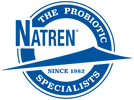Experts agree that a healthy, balanced intestinal microflora leads to a healthy body, better natural defenses, and a happier life – but where did this knowledge come from? Is this the result of modern scientific discoveries?
As it turns out, history tells us a lot about the use of fermented foods, rich in probiotics, throughout the ages. Use of probiotics in the western world can be traced back to the days of King Louis IX of France, when William de Rubruquis discovered the Mongols drinking a soured milk product called cosmos, or Koumiss.
The Mongols would produce this drink using milk from their mares (female horses). They carried leather sacks along their horse’s sides, and in these sacks they would place the mare’s milk. The heat, sweat of the horses, and the agitation from the horse’s movements, would cause the milk in the sacks to ferment, creating what they called Koumiss and what we now call probiotic or fermented milk drinks. Each new batch of the Koumiss was made in the same sack, this left “starting bacteria” from previous batches to mix and ferment with the mare’s milk.
Mare’s milk is known for its high sugar content; in fact, the sugar content is higher than that of cow’s or goat’s milk. It also has more lactose than other types of animal milk; 40% more lactose than cow’s milk. Mare’s milk is better consumed in its fermented form because it is known to be a strong laxative in its natural state. These features result in Koumiss having slightly higher alcohol content than other probiotic drinks such as Kefir.
Koumiss became popular throughout Mongol warrior camps as it was said to make the Mongol’s very strong. It was also known to boost the Mongol’s immune system and make them less prone to sickness during the long battles they endured. In addition to these benefits it is thought to have helped the warriors because it provided predigested proteins. The probiotic bacteria in Koumiss would break down the large proteins in the mare’s milk into a more easily digestible form. The predigested proteins coupled with the increased availability of calcium, folic acid and other nutrients in the fermented milk may have increased the Mongol warrior’s stamina and strength and helped them maintain muscle mass.
Not only is the use of Koumiss steeped in history, but also the advocates of probiotics for their health benefits also have early roots. In 1874, a book written by Dr. Victor Jagielski, titled ‘Koumiss and Its Use in Medicine‘ discusses the origins of Koumiss, including the different methods of production and how it can assist in aiding human health. This makes for interesting reading as it contains a surprisingly detailed breakdown of the properties of Koumiss and its health benefits. This also shows us that probiotic research is an established science – as Isaac Newton once said we are, “…standing on the shoulders of giants,” as we work to further develop the science of these beneficial bacteria that were discovered long ago.
Koumiss or Kumis is still produced today throughout many European regions; however, today it is fermented in large plastic barrels or wooden vats. Some areas use distillation to turn Koumiss into a drink called Araka or Arkhi. Due to the distillation this drink is very high in alcohol and quite different from the Koumiss originally carried by Mongol soldiers.
History tells us that the Mongol warriors were strong, brave, and for the most part, healthy. Studies today show that the probiotic bacteria found in Koumiss likely had a big part to play in their strength and health – attributes that we all seek to enjoy.
The post Koumiss, Airag, Horses & Probiotics – What’s the Connection? appeared first on Natren Probiotics Blog.




0 comments